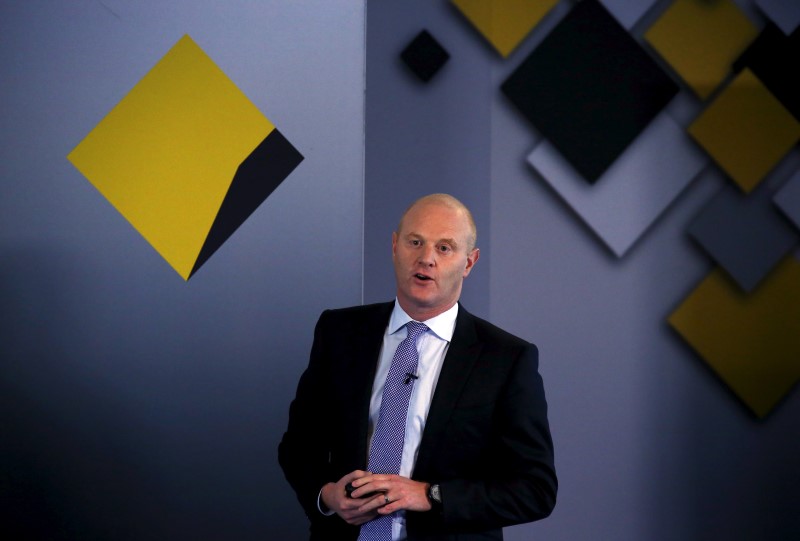By Peter Gosnell
SYDNEY (Reuters) - The head of Australia's largest bank said its insurance business, CommInsure, had used an outdated and discredited definition of a heart attack to deny some claims from clients and he would apologise to any customers adversely affected.
"I am saddened and disappointed by the handling of these cases," Ian Narev, chief executive officer of the Commonwealth Bank of Australia, said in a statement on Saturday.
"I will personally write to the customers concerned to apologise and offer to meet with them face to face," he said.
Narev's comment came as a joint Fairfax-Four Corners investigation revealed that CommInsure was reviewing its use of the definition of a heart attack and may have been aware since mid-2014 that it was no longer best practice.
The CommInsure definition relies on the presence in the bloodstream of a specific protein called troponin, which is released when the heart is damaged.
To be assessed as having had a heart attack, a CommInsure client must show a minimum level of 2 micrograms of troponin per litre of blood.
However, experts have condemned the definition, arguing that heart attacks cannot be diagnosed solely on the basis of troponin levels.
"If we're going to use 2 micrograms per litre as our threshold for diagnosing a heart attack, that's certainly out of date and not the standard we'd apply now," Dr Andrew MacIsaac, president of the Cardiac Society of Australia and New Zealand said.
MacIsaac said a whole range of factors needed to be taken into account when assessing a heart attack and its severity including the symptoms a patient was experiencing on arrival at hospital, the results of tests measuring the heart's electrical activity and imaging to observe how well the heart expands and contracts.
Narev said the Financial Services Ombudsman had rated the likelihood of a dispute involving CommInsure as two in every 100,000 cases but admitted the insurer had focussed too much on process.
"Whilst thoroughness is important for the integrity of the system, this must be balanced by customer need and dignity," he said.
"Here, we got that balance wrong. We focused on details which caused delays at critical times for customers that needed help."
